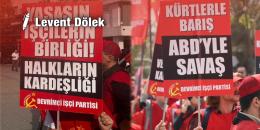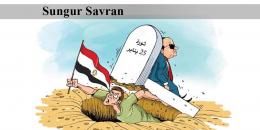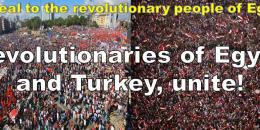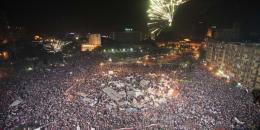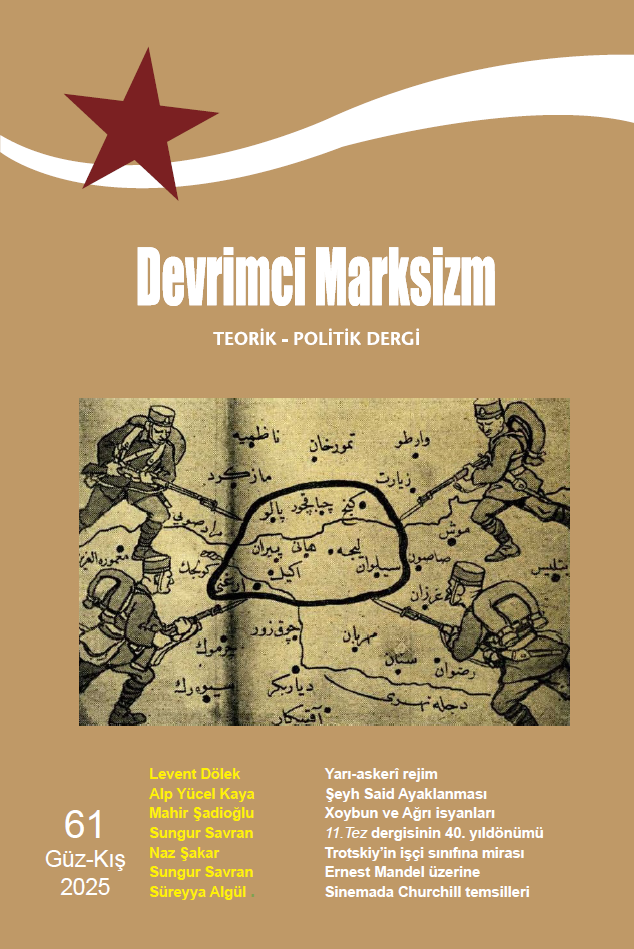The Mediterranean basin: the sea of revolution!
The following is the text of a leaflet that the Revolutionary Workers’ Party (DIP) distributed at the Middle East Conference held on the weekend of 20-21 October 2012 in Istanbul, where a host of Arab and Kurdish left-wing organisations from the Middle East and North Africa were invited to speak. This is an English translation of the original Turkish text.
The Revolutionary Workers’ Party salute the ‘Middle East Conference’ organized by The People’s Democratic Congress. We salute all the Arab revolutionaries who have come to Turkey to attend the conference.
Since the beginning of 2011 when the first sparks of the Arab revolution were witnessed in Tunisia, our Party has endeavoured to forewarn the working class movement and socialists in Turkey and our fellow Kurdish people that a process of revolution had started in our region with international repercussions.
- As soon as the proletariat and the poverty-stricken young population of Tunisia overthrew Ben Ali, we pointed out that a revolutionary era had begun to unfold in the Arab world. Our foresight proved to be entirely true with the revolutions that swept through Egypt, Yemen, Bahrain and Syria in the following weeks as well as the wave of social protests extending from Morocco to Jordan, which were either repressed or placated.
- The revolution in Egypt has secured a privileged place amongst all other revolutions. This is not solely because Egypt has always played a determining part in the Arab world due to its population, geographical location, history, political tradition, culture etc. It is also because the proletarian struggle marked the maturation phase of the revolution and the moment of revolution itself in a pronounced way and, most importantly because, Tahrir Square became the symbol of revolution not just in Arab nations but throughout the entire world.
- We described this revolution as the ‘Arab Revolution’ right from the very beginning. Because, despite the imperialist-drawn state borders of many nation states, there is an immense history, language and culture that unite the Arab people at the very core. More importantly, there are objective reasons that make it necessary to adopt a position against imperialism and Zionism for the revolution to progress.
- We constantly stressed the reactionary nature of the idea that portrayed the uprisings in the Arab world as ‘imperialism re-designing the Middle East’. Imperialism was caught totally off guard in Tunisia, Egypt, Yemen, Bahrain and even Syria and lost much of its power. In time, it developed a strategy of ‘orderly transition’ to minimize the damage.
- We expressed from the first day that Libya was a different case. There was no revolution in Libya. There was instead a rebellion of those who opposed Qaddafi’s regime in the on-going regional and tribal conflicts and took courage from the Arab revolution. Libya has been the scene of a struggle between the dominant classes. Imperialism has taken advantage of this blood-ridden conflict to secure a political safe base and thus to stab the Arab revolution right at its very heart between Egypt and Tunisia.
- The Syrian uprising was initially a revolution of the dispossessed. Those who attempt to display the uprising of the Arab masses as ‘imperialism playing its game’ are now trying to hide a fact proving that this was indeed a revolution: From March 2011, when the revolution started, until August 2011, both the US and the AKP government in Turkey fell short of anything but giving Beshar Assad advice on how to placate the revolution! When it became evident that Assad had neither the intention nor the capacity to quell the protests, both the US and Tayyip Erdogan decided to place their bets elsewhere. The influence of the US, the money of Saudi Arabia and Qatar and the logistic support of Turkey have together paved the way for a pro-imperialist Islamism whereby the revolution is gradually leaving its place to the pro-imperialist warmongers and Al Qaeda. Today, the objective of imperialism and its allies is not only to establish a regime suitable for their own purposes but also to quench the fire of the revolution altogether.
- The Muslim Brotherhood and other Islamist forces, having initially kept out of the revolutionary process, later rose to power by taking advantage of the overturn of dictatorships, which had long kept them in oppression. The reason for this is that such movements had been the most powerful organizations in the previous period. This problem can only be solved by strengthening the movements that could organize the vanguard of the proletariat through revolutionary parties.
- The Arab revolution stands, for now, as a political revolution. In other words, it has succeeded in establishing a political democracy in the countries (Egypt and Tunisia) where it has reached the furthest. The possibility of these revolutions turning into a social revolution, i.e. overturning the socio-economic structure, depends on whether the proletariat will achieve political organization.
The Arab revolution has influenced the entire world, even Israel, in a short period of time. But the most vital response has been from the southern European countries on the northern shores of the Mediterranean. Among those countries most deeply affected by the Third Great Depression which capitalism is inflicted by, right after the Arab revolution, Greece and Spain were and still are the scene of the uprising of the proletariat and youth, while Portugal has entered the same process recently. The Mediterranean has, in its entirety, turned into a revolutionary basin where the world revolution is flowing.
A by-product of the Arab revolution is that the Kurdish struggle for freedom, on-going within the borders of Turkey for so long, has succeeded in gaining a fully international character. The fact that Syrian Kurds established their rule over the cities of Western Kurdistan has brought the Kurdish people one step closer to the possibility of enjoying their right to self-determination throughout the Middle East. The Kurdish revolution is now a part of the Mediterranean revolutionary basin.
Revolutionary winds continue and will continue to exist in the Mediterranean basin. Southern Europe has now taken over the flag in this relay. The struggling proletariat and youth of Greece, Spain and Portugal today and the millions that will be joining them in Italy and France tomorrow have learned to revolt from our Arab brothers and sisters. Now they will show the Arabs that the future can only be built by uniting around the working class. We will then walk to the future together.
Today, the proletariat in Turkey are losing the rights and gains of half a century. With the adoption of the Law on Collective Labour Relations, the right to enter into collective bargains, the right to strike and join unions are becoming a ‘memory’ of the past requiring renewed struggle. Furthermore, the European economic crisis is rapidly approaching Turkey. The Turkish proletariat have to stand up to survive! Once they do, they will find beside them their fellow Kurdish people, who have been struggling for years for their freedom and honour. Only then will this geography become a true part of the ‘Mediterranean Revolutionary Basin’ as a whole.
There is a need to have a world party to secure the success of this international revolution! The Revolutionary Workers’ Party (DIP) is progressing on the path taken by so many internationalists including Marx, Engels, Lenin and Trotsky, in its struggle to found the revolutionary party of the vanguard workers in Turkey and the world party for socialist revolution at the international level under the Coordination for the Refoundation of the Fourth International (DEYK/CRFI).
Long live the Arab Revolution!
Long live the class struggles in the Mediterranean Revolutionary Basin!
Freedom to the Palestinian and Kurdish peoples!
Long live the Socialist Federation of the Middle East!





